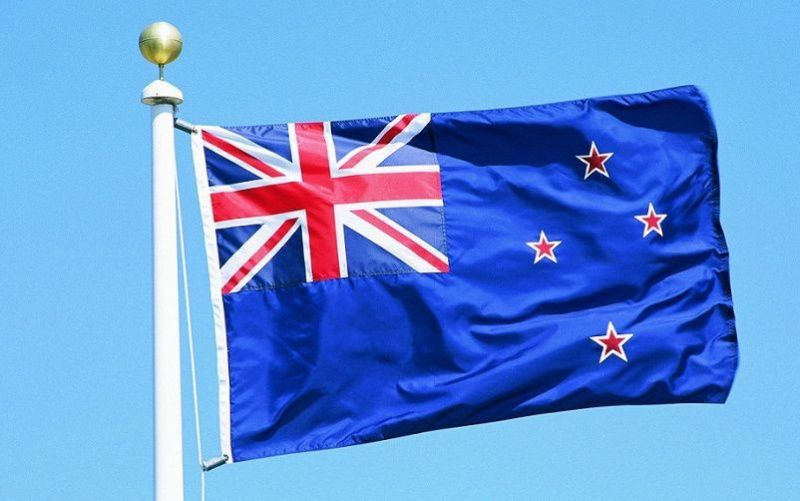New Zealand on Alert for Potential Trump Trade Policies: Government and Industry Prepare for Possible Tariffs
Source: DairyNews.today
New Zealand's Trade Minister Todd McClay has expressed concern over the potential implications of Donald Trump’s return to the White House, specifically regarding his proposed protectionist trade policies.

Should Trump be re-elected, he has pledged to implement substantial tariffs on imports, including a possible 60% tariff on goods from China and tariffs ranging from 10% to 20% on all imports. These measures are aimed at boosting the U.S. industrial base at the expense of foreign competitors, which could have significant repercussions for countries like New Zealand.
Impact on New Zealand-U.S. Trade Relations
McClay emphasized that New Zealand’s longstanding friendship with the United States could be a critical factor in securing exemptions from any new tariffs imposed by a Trump administration. He noted that such tariffs would be detrimental to both New Zealand and the U.S., as they could increase costs for American consumers and reduce the availability of high-quality New Zealand products.
Fonterra’s James McVitty echoed these concerns, stating that high tariffs would be inflationary and would negatively impact food manufacturing jobs in the U.S. since many New Zealand agricultural exports are essential ingredients in various American industries, including health and wellness, pharmaceuticals, and infant formula.
Strategic Response and Diplomatic Efforts
McClay stressed that the New Zealand government would make a strong case against the imposition of tariffs, arguing that they would harm both countries' economies. He pointed out that while New Zealand currently enjoys a relatively balanced trade relationship with the U.S., the use of tariffs could disrupt this balance and damage the mutually beneficial relationship.
However, McClay also acknowledged that New Zealand’s diplomatic efforts might face challenges, citing the 2018 steel tariffs imposed by Trump’s administration, which remained in place despite New Zealand’s lobbying efforts.
If New Zealand’s diplomatic efforts fail, Stephen Jacobi, executive director of the International Business Forum, suggested that the government should be prepared to take swift legal action. This would likely involve joining other affected countries in challenging the tariffs at the World Trade Organisation (WTO). Jacobi humorously noted that, unlike larger nations, New Zealand lacks the military power to retaliate directly, joking that the country might send a ferry to Mexico as a symbolic gesture.
Prospects with a Democratic Administration
On the other hand, McClay pointed out that while Kamala Harris, the Democratic candidate, has a history of opposing free trade agreements, her running mate, Tim Walz, has shown a positive attitude towards New Zealand. Walz has previously expressed confusion over why the U.S. does not have a free trade agreement with New Zealand, which could signal a more favorable trade environment under a Democratic administration.
As the 2024 U.S. presidential election approaches, New Zealand remains vigilant, preparing for potential challenges and opportunities in its trade relationship with the United States. The government’s strategy will likely involve a combination of diplomatic engagement and legal action to protect New Zealand’s interests in the face of potential tariffs, while also exploring the possibilities of stronger trade ties under a different U.S. administration.
Impact on New Zealand-U.S. Trade Relations
McClay emphasized that New Zealand’s longstanding friendship with the United States could be a critical factor in securing exemptions from any new tariffs imposed by a Trump administration. He noted that such tariffs would be detrimental to both New Zealand and the U.S., as they could increase costs for American consumers and reduce the availability of high-quality New Zealand products.
Fonterra’s James McVitty echoed these concerns, stating that high tariffs would be inflationary and would negatively impact food manufacturing jobs in the U.S. since many New Zealand agricultural exports are essential ingredients in various American industries, including health and wellness, pharmaceuticals, and infant formula.
Strategic Response and Diplomatic Efforts
McClay stressed that the New Zealand government would make a strong case against the imposition of tariffs, arguing that they would harm both countries' economies. He pointed out that while New Zealand currently enjoys a relatively balanced trade relationship with the U.S., the use of tariffs could disrupt this balance and damage the mutually beneficial relationship.
However, McClay also acknowledged that New Zealand’s diplomatic efforts might face challenges, citing the 2018 steel tariffs imposed by Trump’s administration, which remained in place despite New Zealand’s lobbying efforts.
If New Zealand’s diplomatic efforts fail, Stephen Jacobi, executive director of the International Business Forum, suggested that the government should be prepared to take swift legal action. This would likely involve joining other affected countries in challenging the tariffs at the World Trade Organisation (WTO). Jacobi humorously noted that, unlike larger nations, New Zealand lacks the military power to retaliate directly, joking that the country might send a ferry to Mexico as a symbolic gesture.
Prospects with a Democratic Administration
On the other hand, McClay pointed out that while Kamala Harris, the Democratic candidate, has a history of opposing free trade agreements, her running mate, Tim Walz, has shown a positive attitude towards New Zealand. Walz has previously expressed confusion over why the U.S. does not have a free trade agreement with New Zealand, which could signal a more favorable trade environment under a Democratic administration.
As the 2024 U.S. presidential election approaches, New Zealand remains vigilant, preparing for potential challenges and opportunities in its trade relationship with the United States. The government’s strategy will likely involve a combination of diplomatic engagement and legal action to protect New Zealand’s interests in the face of potential tariffs, while also exploring the possibilities of stronger trade ties under a different U.S. administration.
Key News of the Week










